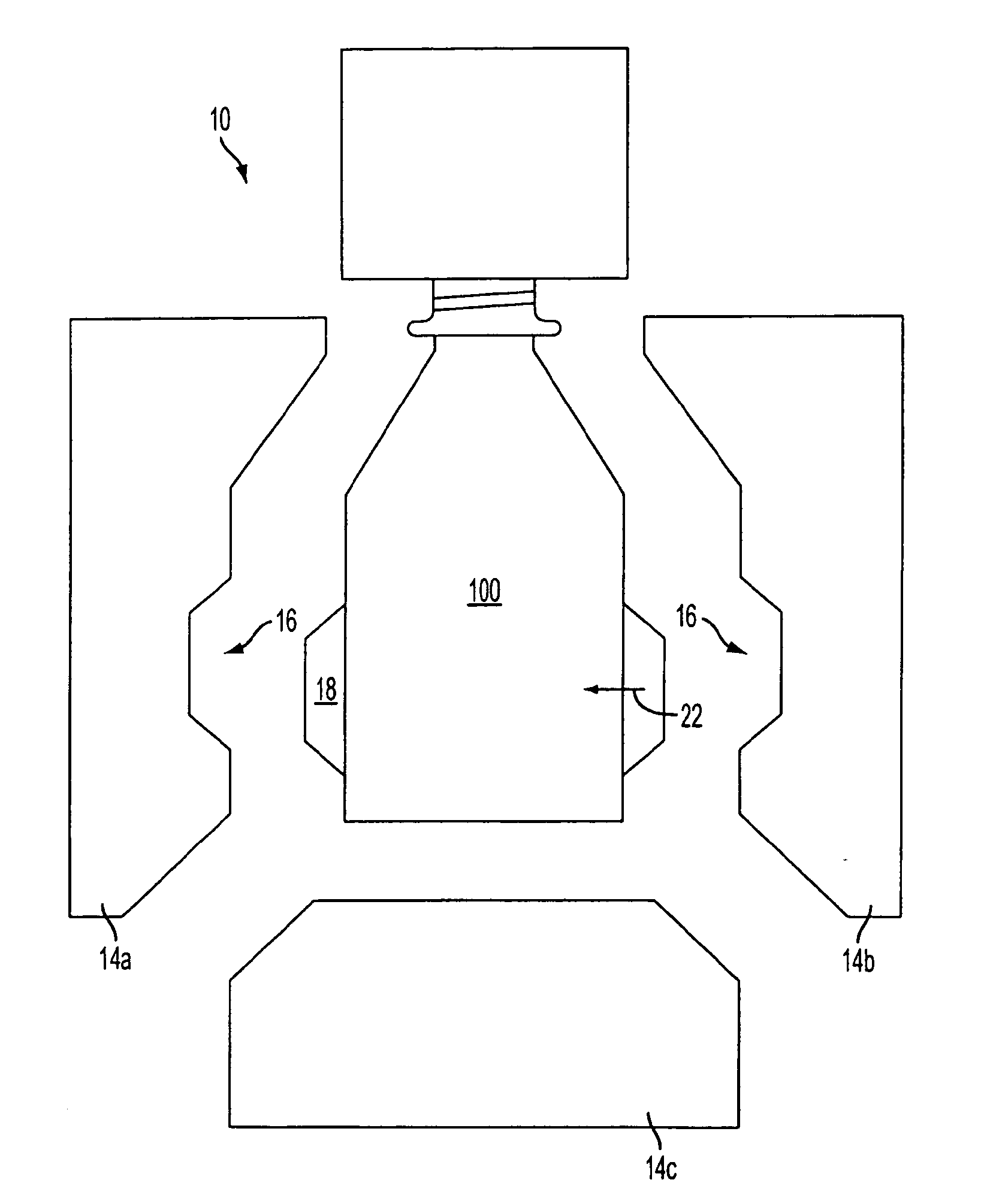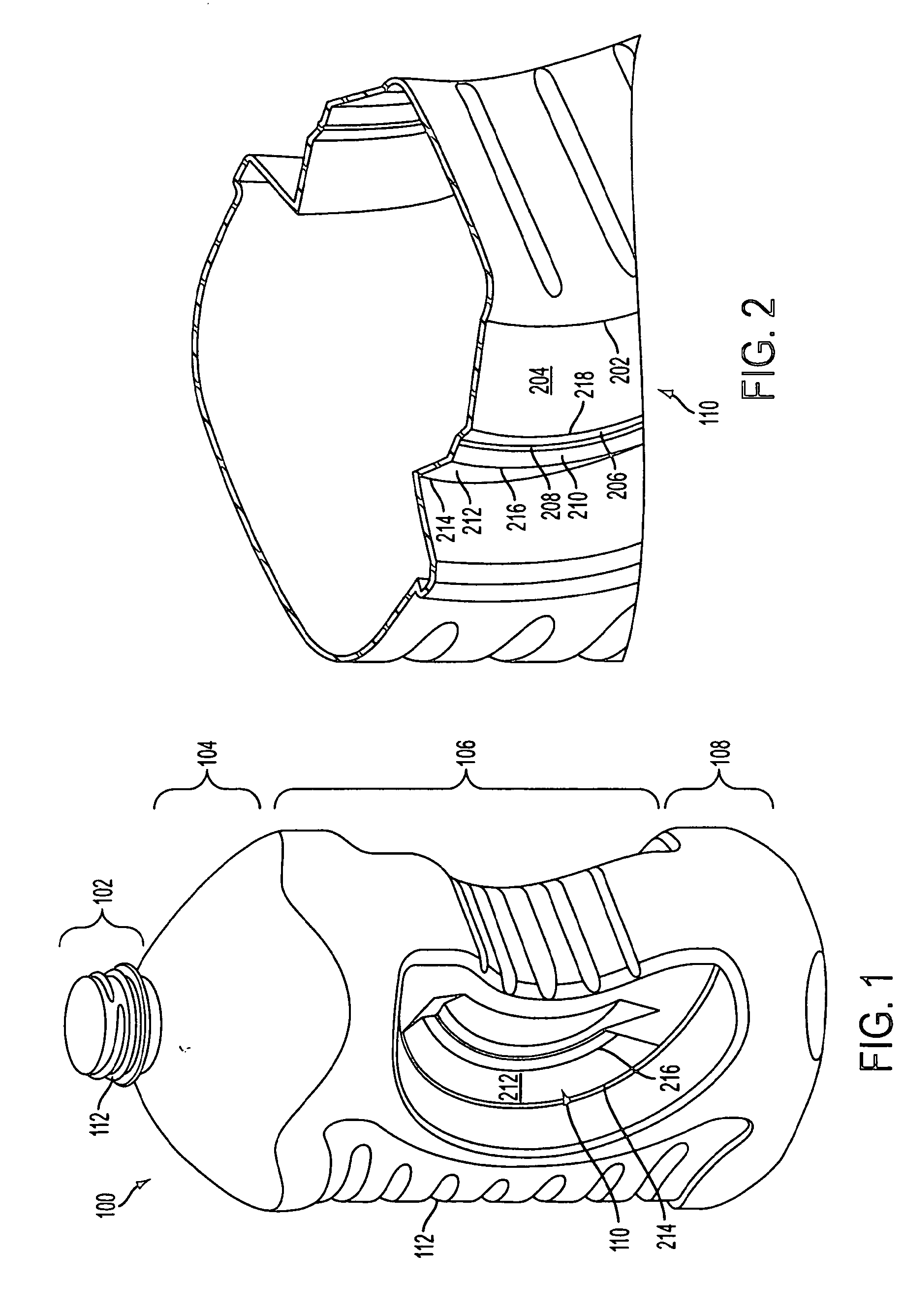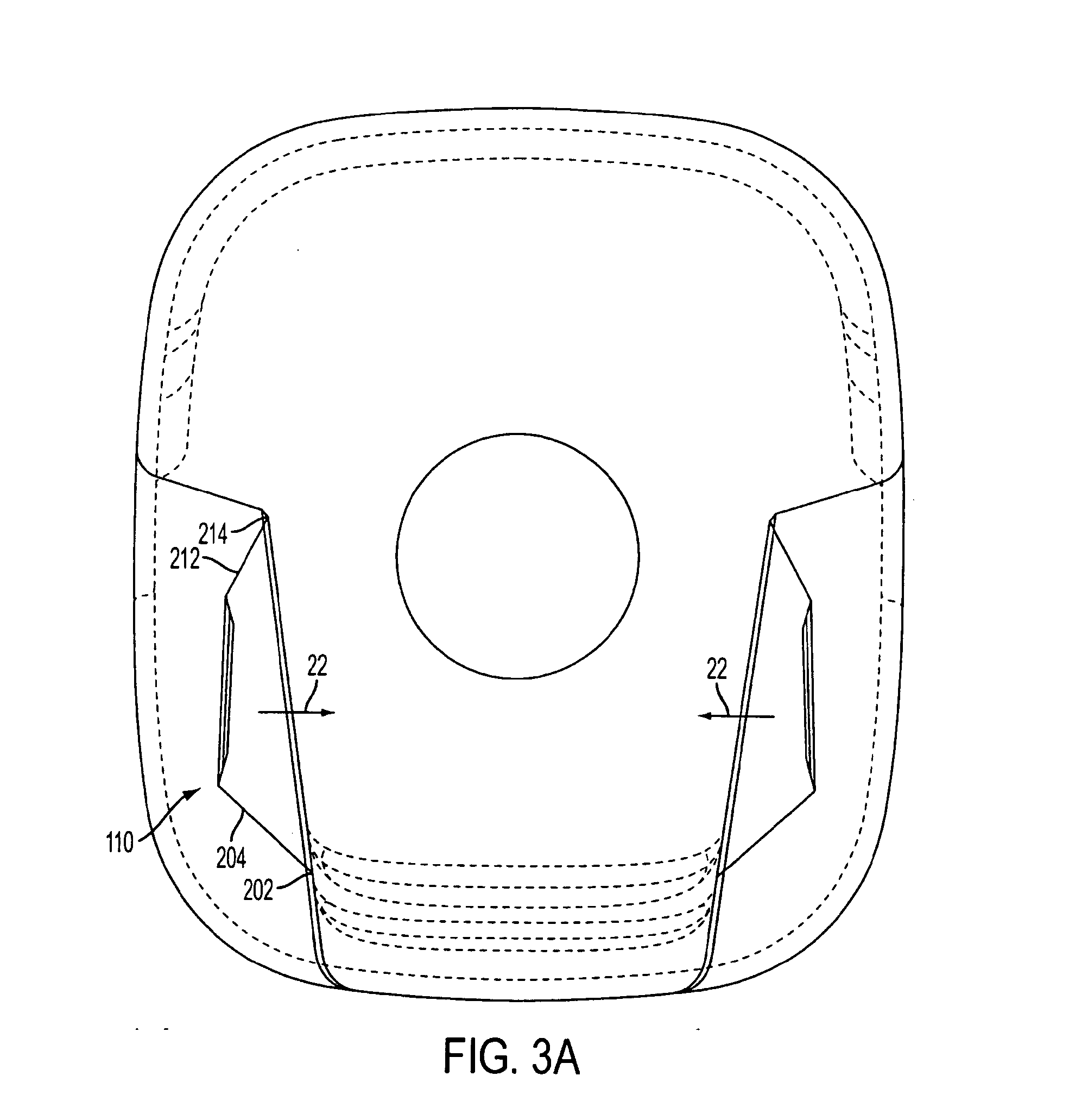Method of Forming Container
a container and container body technology, applied in the direction of rigid containers, transportation and packaging, other domestic articles, etc., can solve the problems of affecting the performance of the container at certain areas, affecting the ability, and the plastic material is less able to flow and stretch around the protruding protruding, so as to achieve secure grippability and reduce the effect of weight and good ergonomic feel in the resultant container
- Summary
- Abstract
- Description
- Claims
- Application Information
AI Technical Summary
Benefits of technology
Problems solved by technology
Method used
Image
Examples
Embodiment Construction
[0064]Exemplary embodiments of the invention are discussed below. In describing the exemplary embodiments, specific terminology is employed for the sake of clarity. However, the invention is not intended to be limited to the specific terminology so selected. While specific exemplary embodiments are discussed, it should be understood that this is done for illustration purposes only. A person skilled in the relevant art will recognize that other components and configurations may be used without parting from the spirit and scope of the invention. All references cited herein are incorporated by reference as if each had been individually incorporated.
[0065]Exemplary embodiments of the present invention may generally relate to a container, a method of inverting a grip of a container, and a blow molding apparatus for forming a container having an invertible grip. The grip can be a deep-set grip. In an exemplary embodiment, as shown in FIG. 4, a blow-molding apparatus 10 may receive a paris...
PUM
| Property | Measurement | Unit |
|---|---|---|
| depth | aaaaa | aaaaa |
| temperature | aaaaa | aaaaa |
| depth | aaaaa | aaaaa |
Abstract
Description
Claims
Application Information
 Login to View More
Login to View More - R&D
- Intellectual Property
- Life Sciences
- Materials
- Tech Scout
- Unparalleled Data Quality
- Higher Quality Content
- 60% Fewer Hallucinations
Browse by: Latest US Patents, China's latest patents, Technical Efficacy Thesaurus, Application Domain, Technology Topic, Popular Technical Reports.
© 2025 PatSnap. All rights reserved.Legal|Privacy policy|Modern Slavery Act Transparency Statement|Sitemap|About US| Contact US: help@patsnap.com



